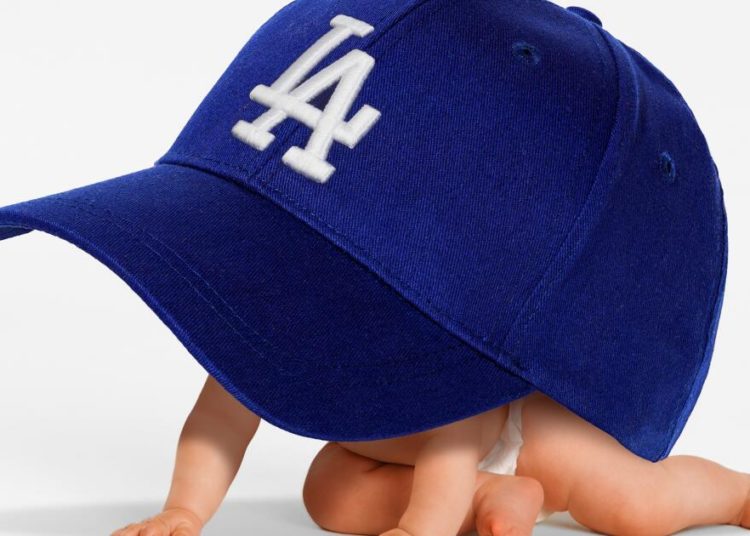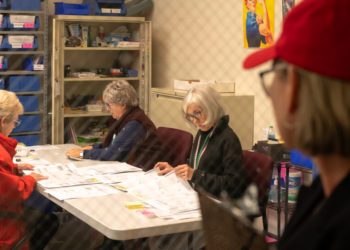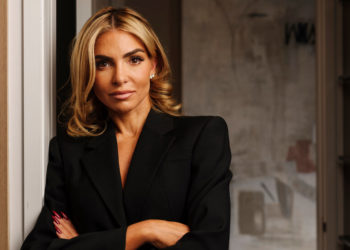As was often the case during a tumultuous few weeks in September, Malala Yousafzai’s head and heart were pulling her in opposite directions.
In one corner, her objection to the patriarchal bias toward marriage. In the other, her thirst for a fairy tale ending.
“I can’t believe this whole show is about getting married,” she groused from the sofa of her hotel room, in a Manhattan skyscraper near the Hudson River. She was watching the series finale of “The Summer I Turned Pretty,” the hit romance drama (based on the young adult books) and a recent obsession.
“Who would want to get married when they’re 21?” she asked.
By the end of the episode, in which Belly, the young female protagonist, resolves a will-they-or-won’t-they plot by declaring everlasting love in a Parisian train station, Yousafzai, 28, was striking a different tone.
“Oh my God,” she whimpered at a climactic kiss, with a florid Taylor Swift song swelling in the background.
“Thank God. Very good.”
At 15, Belly’s age at the start of the series, Yousafzai — the activist and international advocate for girls’ education — became the lead of a darker storybook tale. One morning in Mingora, Pakistan, a Taliban assassin boarded her school bus and shot her at point blank range, sending a bullet through her left eye socket and out the back of her skull.
Before the shooting, Yousafzai was a bright and ordinary girl from a pastoral valley, best known as the author of a widely circulated BBC diary about the emergence of a brutally repressive and misogynistic regime. After it, she gave an indelible speech at the United Nations, wrote a best-selling memoir, became the youngest-ever winner of the Nobel Peace Prize and transitioned into a kind of living sainthood, all before finishing high school.
A new memoir, “Finding My Way,” brings her story into young adulthood. It is a remarkably intimate and insistently human chronicle of a moral authority’s coming of age. With a novel’s pacing and character development, it follows Yousafzai as she leaves a sheltered existence under her mother’s rule in Mingora and struggles to shape her identity as a college student, friend, wife and public figure.
“At 15 years old, I hadn’t had time to figure out who I wanted to be when, suddenly, everyone wanted to tell me who I was,” she writes in the book’s introduction. “When I was alone, I unraveled — because the hardest thing to be was myself.”
SITTING COURTSIDE at Barclays Center in Brooklyn, Yousafzai waved and smiled at a camera as it beamed her image to four 27-foot screens hovering above the crowd. The stadium filled with cheers as 17,000 New York Liberty fans, nearly a full house, gave her a standing ovation.
After “The Summer I Turned Pretty” finale, we had taken a car to watch the Liberty play the Phoenix Mercury in the W.N.B.A. playoffs, the next item on her agenda during a four-day work trip to New York.
Yousafzai estimated that she spends roughly half the year in London — where she bought a home in 2022 with her husband, Asser Malik, 35, a Pakistani sports executive — and the rest on the road. Even with breaks to work on the new memoir, she has traveled to nine countries so far this year, mostly for Malala Fund, her nonprofit supporting girls’ education around the world, and for speaking engagements, her primary source of income.
Before the camera feed switched on, Yousafzai, who wore a dark blazer over a tucked-in T-shirt, jeans and sneakers, covered her hair with an oxblood scarf. She expanded her wardrobe beyond traditional shalwar kameez garments long ago (she picked clothing for her freshman year at Oxford University by Googling “Selena Gomez casual”) but prefers a head scarf for photos and public appearances.
Later, in one of a series of interviews this fall, she said the scarf is a gesture of solidarity with young women in predominantly Muslim countries who struggle to balance the pursuit of personal freedom with reverence for their heritage.
“I think sometimes people confuse the idea of women’s freedom with Western culture,” she said. “I want girls in Pakistan to know that they can feel empowered within their culture and traditions — that they don’t have to change their identity to be seen as independent.”
In Pakistani media, where her social liberalism is still the subject of controversy, photos of Yousafzai are dissected with forensic scrutiny. An image of her wearing skinny jeans after rowing practice in college got her labeled a heretic and compared to a porn star.
After a spontaneous photo with David Beckham prompted concerned calls to her parents (in traditional Pashtun culture, unmarried men and women are forbidden from fraternizing), her mother crashed a shoot with Prince Harry.
“No touch!” she shouted at the prince, who had draped an arm over Yousafzai’s shoulders.
“I think it’s difficult for many people in Pakistan to see someone like her become as big as she is,” said a friend of Yousafzai’s from Peshawar, who is referred to by the pseudonym Sofia in the memoir. (She asked to be identified that way here to protect her privacy.)
“Not only is she a woman, but she doesn’t come from a wealthy background,” said Sofia. “A lot of people feel like they have the license to judge her every move.”
Yousafzai’s most ferocious detractors have long fueled conspiracy theories that she was never really shot by the Taliban, or that the attack had been staged by her family in a bid for sympathy from the West.
In a diary entry shortly after she was released from the hospital — excerpted in “Finding My Way” — a 15-year-old Yousafzai imagined confronting the man who shot her.
What would I say to him? I only ask that next time you aim for the middle of my forehead. Make sure everyone sees it. Then they won’t say I wasn’t shot.
I asked Yousafzai if she had ever regretted surviving the attack.
“At the time, yes,” she said. “I was very angry and frustrated. But later, I realized that there’s nothing you can do to convince everybody to believe you. I just have to move on and keep doing what I want to do.”
The bullet severed a facial nerve and destroyed her left eardrum, paralyzing the left side of her face and leaving her partially deaf. For years, Yousafzai covered her mouth when she laughed, insecure about the “uneasy grimace” she saw in the mirror. A complex surgery, one of eight in four years, transposed a nerve from her calf to her cheek, restoring a limited range of movement.
The extent of her psychological injuries took longer to come to light. She had a panic attack in her second year at Oxford, triggered by violent flashbacks after she used a bong for the first time. When further attacks made her fear leaving her dorm room (“Every interaction with other people felt dangerous, like it might cause my mind to fracture even further,” she writes), she began seeing a therapist.
“I’ve always been so worried about what I say, or think, or how I’m supposed to be,” said Yousafzai, who still sees the same therapist two to three times a month. “She makes me feel really comfortable expressing myself without feeling like I’m failing in who I am, or not thinking the right way.”
AT THE LIBERTY GAME, Spike Lee and the actress Tracee Ellis Ross, Yousafzai’s fellow residents on what the team calls “CeLiberty Row,” came over to pay their respects. Although she works in education and sees herself as an activist, people often implicitly categorize her as a celebrity.
Yousafzai isn’t fond of the term — she talks of her “global recognition” instead — but has recently been leveraging her influence outside of the solemn nonprofit world.
In June, she and Malik announced a new company, Recess Capital, that will invest in the development of women’s sports. Yousafzai became excited about the idea after Malik, a former general manager with the Pakistan Cricket Board, pointed out the extreme disparities faced by male and female athletes globally.
“If we have the capacity, why not challenge the for-profit side, as well?” she said.
In addition to the sports venture, she founded Extracurricular Productions — a film and television company that supports the work of Muslims and women of color — and was an executive producer of “Suffs,” the Broadway musical about the women’s suffrage movement in America.
Because of the musical’s affiliation with another executive producer, Hillary Clinton, Yousafzai’s involvement sparked a backlash. Many people in Pakistan and the Middle East associate Clinton with the drone warfare of the Obama administration, in which she served as Secretary of State, and were critical of her support for Israel during the war in Gaza.
Yousafzai, who personally appealed to President Obama to end the drone strikes and has described the Israeli campaign as a genocide, said she had no direct contact with Clinton and that antiwar activists should concentrate their energy on leaders in office.
“When it comes to advocacy, I think it’s important that we focus on those in power who can make decisions,” she said. “We should not be distracting ourselves with these past figures.”
IN A GROUP OF RELATIVE STRANGERS on her last night in New York, Yousafzai listened patiently as one woman tried to gently explain to another who she was.
“You don’t know Malala?” the woman said, her eyes widening. “She’s amazing! She does great things for girls and education … She won the Nobel Peace Prize!”
Whenever Yousafzai meets someone, she performs a series of mental calculations. How much do they know? How much is appropriate to share?
“I could talk about the big picture and what happened to me and how now I’m working toward empowering girls, and all that,” she said. “But sometimes, that conversation gets really heavy and serious.”
The night was supposed to be about having fun — she was in a suite at Madison Square Garden, where a friend had invited her to watch a concert by one of Yousafzai’s favorite artists, Dua Lipa. But while waiting for Lipa to take the stage, Yousafzai had become the main attraction. In every configuration of the suite’s 20 or so concertgoers, the topic of discussion drifted invariably in her direction.
During a respite, Malik quietly handed her a glass of sparkling water and a chocolate chip cookie. The two met through mutual friends — while Yousafzai was at home in Birmingham, England for the summer before her final year at Oxford — and got married in a small ceremony at her parents’ house in 2021.
“If we’re not together, she’ll keep working until 3 a.m.,” Malik told me. “I try to make sure that she takes time for herself.”
For most of her life, Yousafzai was ideologically opposed to getting married.
“Growing up, I spent hours in my aunts’ kitchens as they prepared meal after meal, caring for eight or nine children at a time, waiting hand and foot on husbands they hadn’t chosen and, I suspected, would never love,” she writes in “Finding My Way.”
But, as with many young heroines before her, her heart ultimately won out.
“He has the right understanding of what a marriage should be — mutual respect, love and affection,” she said of Malik. “And, of course, he’s good looking and funny.”
When Lipa had emerged and all eyes were on the stage, Malik took Yousafzai by the hand and led her in the dark to a landing on the stairs. He looked at her tenderly. She rested her head on his chest. They swayed together softly as the music boomed.
Thank God. Very good.
Reggie Ugwu is a Times culture reporter.
The post Nights Out With Malala, Making Time to Be Herself appeared first on New York Times.




